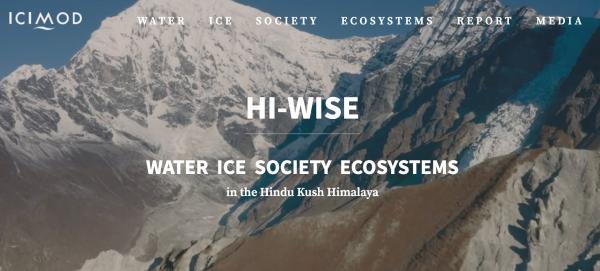ICIMOD report calls for urgent international action to save the Hindu Kush Himalayan Cryosphere
27 Jun 2023 by The Water Diplomat

The International Centre for Integrated Mountain Development (ICIMOD) has released a report detailing changes to the glaciers, snow and permafrost in the Hindu Kush Himalayan (HKH). The report, produced by the eight-nation mountain monitoring body, is the most detailed and accurate report to date on the HKH region, and it warns of accelerated disappearance of glaciers over the past decade as well as an impending cascade of impacts of climate change in the region which will affect one quarter of the world’s population. The report calls for urgent international support and regional cooperation now to respond to loss and damage from climate change as well as to help communities in their efforts to adaptation to a changing climate.
The Hindu Kush Himalayan region is sometimes also referred to as the world’s ‘third pole’ due to the fact that it stores the largest quantity of snow and ice outside the polar regions. The ice and snow in the Hindu Kush Himalaya are an important source of water for 12 rivers – 10 of them transboundary rivers - that flow through 16 countries in Asia, providing freshwater and other vital ecosystem services to 240 million people in the mountains and a further 1.65 billion downstream. For instance, the HKH area contributes up to 74% of river flow in the Amu Darya River Basin shared by Tajikistan, Afghanistan, Turkmenistan, and Uzbekistan. It also contributes 40% of the flow of the Indus (40%) shared by Pakistan, India, China and Afghanistan, as well as 77% of the Helmand River shared by Afghanistan and Iran. The area is also important from the perspective of biodiversity, hosting all or parts of four global biodiversity hotspots supporting diverse flora and fauna.
The report warns that the region is undergoing unprecedented and largely irreversible changes, primarily driven by climate change. If current emissions patterns continue, the area could lose up to 80% of its glaciers by the end of the century. Speaking to CBS New, ICOMOD Deputy Director General Izabella Koziell stated “The crisis is getting worse, and it is getting worse fast – that is why this report is so important: it needs to trigger rapid and urgent action even if this feels remote from us sitting far aways from this region. It is going to affect us all whether that is through the mass movement of peoples or through sea level rise”.
